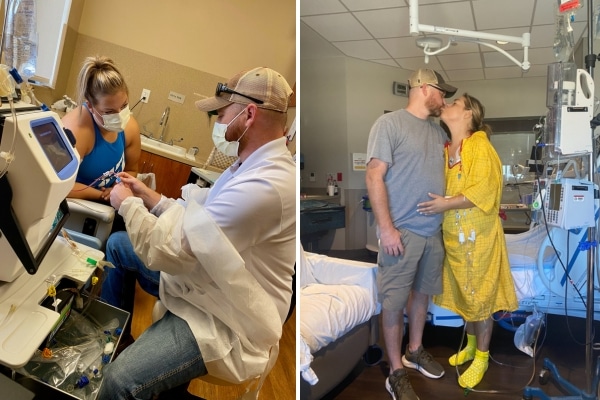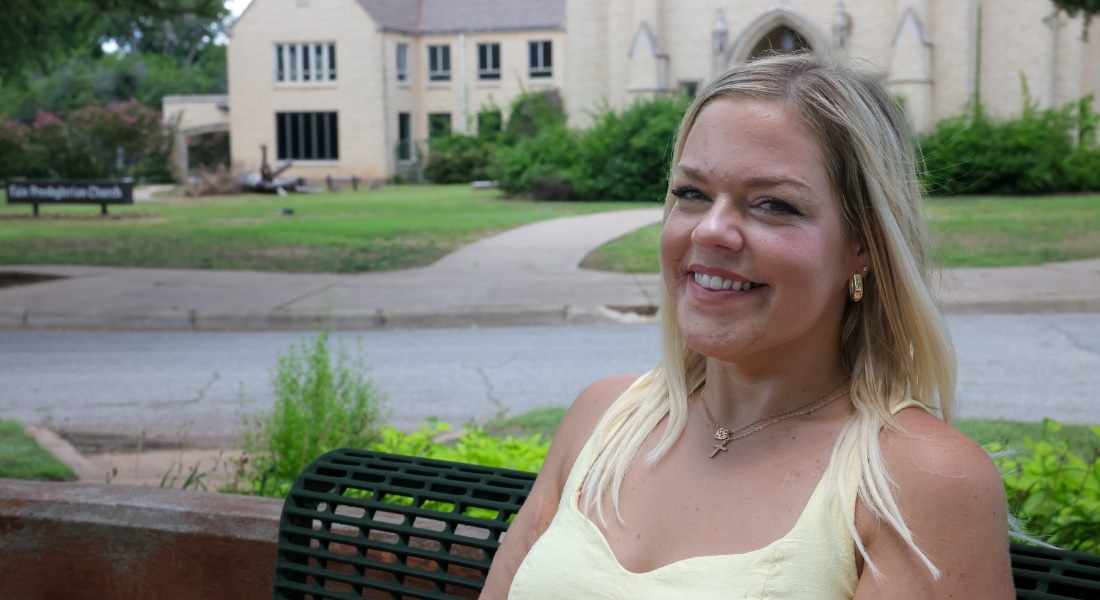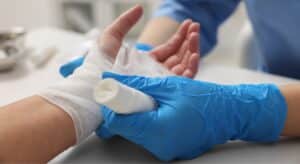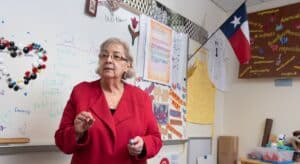Diagnosed with type 1 diabetes at age 11, Ivy Terry never talked about her disease until her kidneys started shutting down in her 30s.
“I was embarrassed about having diabetes,” says the 37-year-old Amarillo native. “I didn’t want to be different.”
As Ivy inched closer toward kidney failure, she was placed on a transplant list for both a kidney and pancreas. She was notified five times when possible matches were identified, but they all ultimately ended in disappointment.
Then a sixth call came from Methodist Dallas Medical Center, following six years of dialysis, and this time it felt different.
“I had my bag packed for months,” Ivy recalls, laughing. “I didn’t want to get my hopes up, but this one just felt right.”
In August 2024, Ivy flew to Dallas to receive a lifesaving transplant. She was 300 miles from Amarillo — but somehow not all that far from home.
“It just felt like home,” she says of the hospital. “Even from the first appointments, I knew I wanted my transplant to be there.”
TRICKY TRANSPLANT
Ivy was one of about 100,000 Americans who need a kidney transplant, nearly 10,000 of them in Texas, according to the Texas Department of State Health Services.
That number doesn’t just represent a statistic; it’s a daily reality of dialysis, doctors’ visits, and dreams deferred.
In Ivy’s case, she also needed a new pancreas because her diabetes was type 1. Finding a donor kidney was tough enough, but a dual transplant made the match especially tricky.
By her mid-30s, Ivy’s condition was deteriorating rapidly, with her kidneys working at only 13%.
“I felt full all the time, exhausted, gaining weight without reason,” she says.
Dialysis became part of her everyday life, sometimes in a clinic, sometimes at home with the help of her husband, Tyler.
“I wouldn’t have made it without him,” she says of the man she married in 2018, shortly after doctors diagnosed her with end-stage renal disease.
Ivy could always talk to Tyler, but as her health journey progressed, she began sharing her journey online, building a community of encouragement.
“I didn’t want to hide anymore,” she says. “I knew my story could help someone.”

Ivy counted on her husband Tyler’s help through six years on dialysis.
A PERFECT MATCH
On the day Ivy finally got “the call” last summer, just making it to Dallas was tricky in its own right. The family’s flight was grounded due to weather delays, and Ivy began to wonder if a storm cloud was following her.
“Maybe I am the storm,” she told her mom with a smirk as they sat waiting at the terminal in Amarillo.
But the clouds parted when she again saw her doctor in Dallas: Christie Gooden, MD, MPH, transplant surgeon on the staff at Methodist Dallas.
“I met Dr. Gooden a few times when previous matches didn’t work,” she recalls. “Every time she left the room, I’d say to myself, ‘I want her to be the one.’ You just feel safe with her.”
Ivy got her wish when Dr. Gooden performed a simultaneous kidney-pancreas transplant, a complex, six-hour procedure.
“When we transplant both organs, the pancreas comes first,” Dr. Gooden explains. “Ivy’s pancreas began working immediately. By the time we finished placing the kidney, her blood sugar had dropped to normal.”
Ivy’s new pancreas worked so well that doctors had to give her glucose during surgery because her blood sugar had dropped so low.
“I hadn’t had a normal blood sugar in years,” Ivy says. “To wake up and hear that everything was working perfectly, it was almost hard to believe.”

Ivy took a dip during a Colorado trip the year after her transplant.
FREE FROM DIALYSIS
Ivy spent five days in the hospital, but she was up and walking within 24 hours.
“I told myself, if I get this transplant, I’m going to do everything to heal,” she says, smiling from ear to ear. “And I did.”
She named her new organs “Thunder and Lightning,” a nod to that storm-delayed flight and her renewed strength.
The transplant offered Ivy more than physical healing; it gave her emotional freedom, too.
“I used to take my blood sugar 10 times a day,” she says. “Now, once a week. No insulin. No dialysis. I never thought I’d live this free.”
She’s embracing life again, working out, traveling, and even swimming for the first time in years.
Her care team sees the change, as well.
“Ivy is thriving now,” Dr. Gooden says, recalling the roller-coaster ride she and Ivy shared over the years. “We went through the heartbreak together. So when it finally worked out, we were hugging. It was pure joy.”

Ivy and Tyler tied the knot shortly after she was diagnosed with kidney failure at age 30.
MESSAGE OF GRATITUDE
Through it all, Ivy formed deep bonds, not just with Dr. Gooden, but with her nurses, social workers, and nephrologist back home in Amarillo.
“One of my nurses was like sunshine walking in the room,” she says. “And Dr. Gooden, she’s like family now. She has magic hands.”
Ivy also knows none of it would be possible without her donor.
“If I could meet my donor, I’d hug his neck and thank him,” she says through tears. “He’s a hero.”
Ivy hopes her story inspires others to consider organ donation.
“That one kidney you donate, it can give someone their life back,” she says. “And if you’re ever offered the chance to be a donor, please take it. You could be someone’s miracle.”






